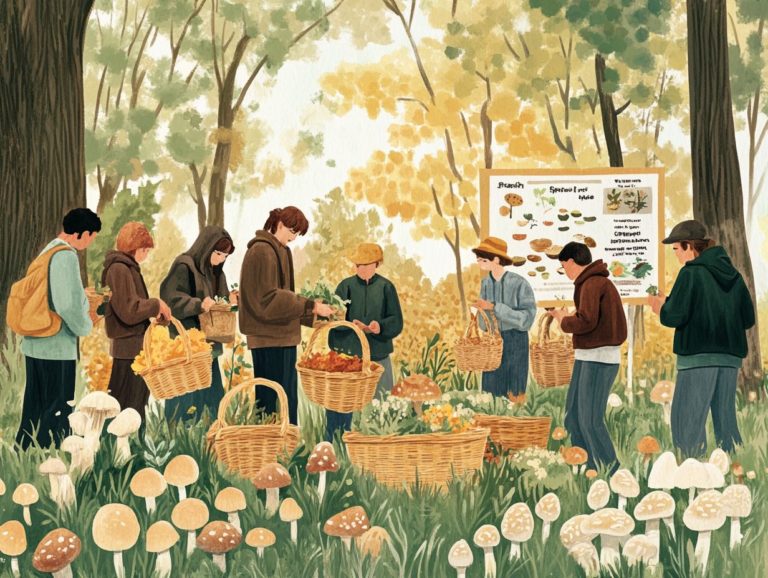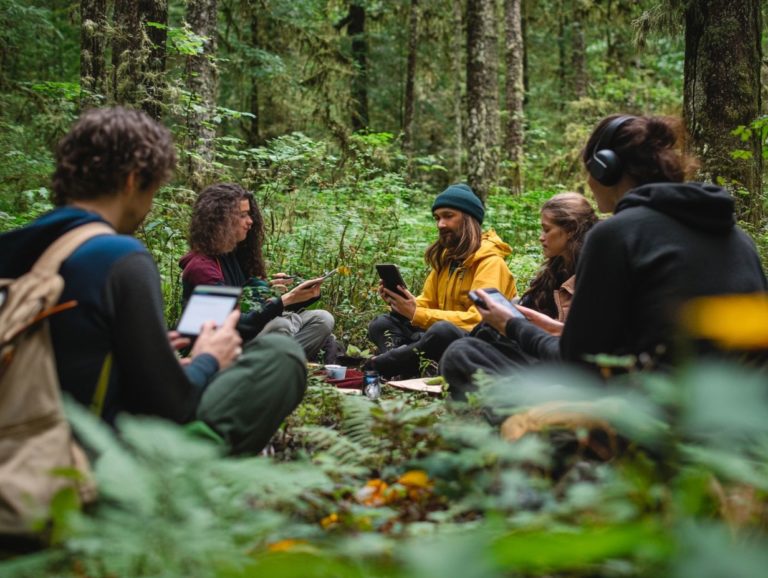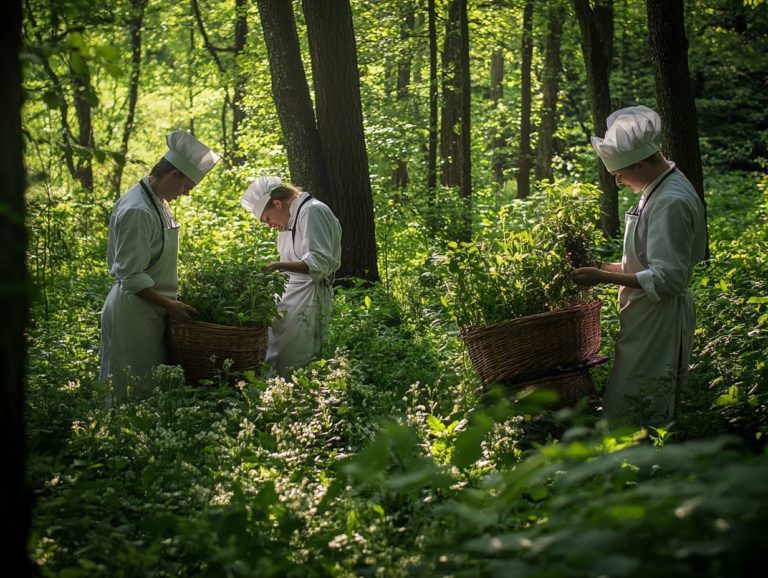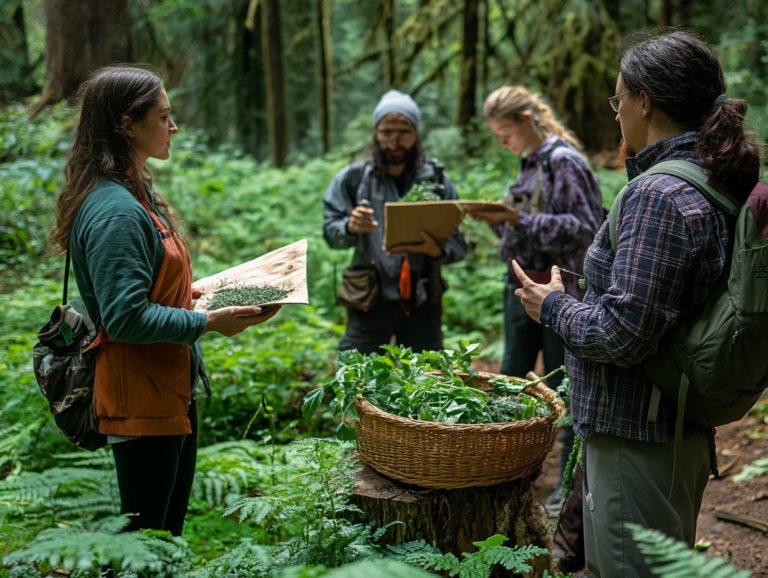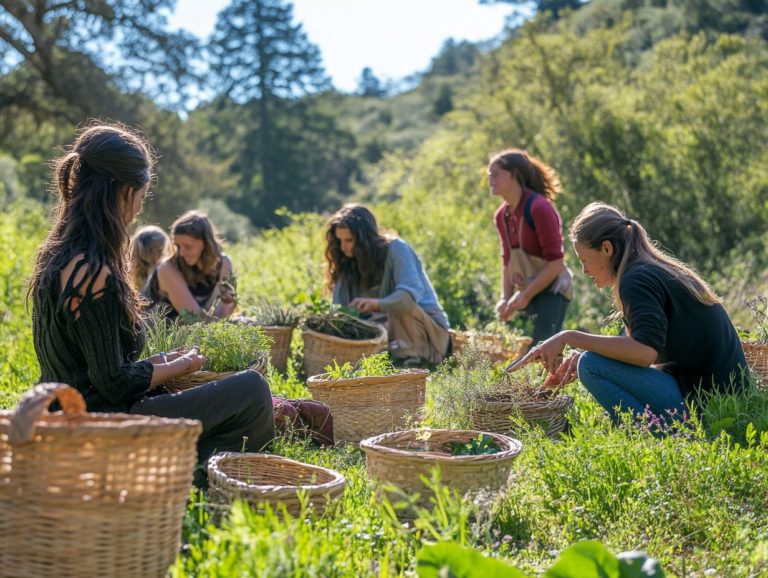The Importance of Local Foraging Networks
In a world that s increasingly prioritizing sustainability, local foraging stands out as a compelling movement that bridges your connection to nature and your community.
This article delves into the myriad benefits of local foraging. It highlights its positive environmental impact and its power to foster community resilience. You ll learn how to establish and nurture vibrant foraging networks while uncovering the social and economic advantages they provide. We will also address the challenges they face and explore solutions to enhance inclusivity.
Embark on this journey with us to uncover the significance of local foraging networks and the vital role they play in promoting sustainable living.
Contents
- Key Takeaways:
- Defining Local Foraging and Its Benefits
- The Role of Local Foraging in Sustainable Living
- Creating and Maintaining a Local Foraging Network
- Benefits of Supporting Local Foraging Networks
- Challenges and Solutions for Local Foraging
- Frequently Asked Questions
- What are local foraging networks?
- Why are local foraging networks important?
- How do local foraging networks benefit local communities?
- How do local foraging networks contribute to environmental conservation?
- How can I get involved in local foraging networks?
- What are the potential challenges of local foraging networks?
Key Takeaways:
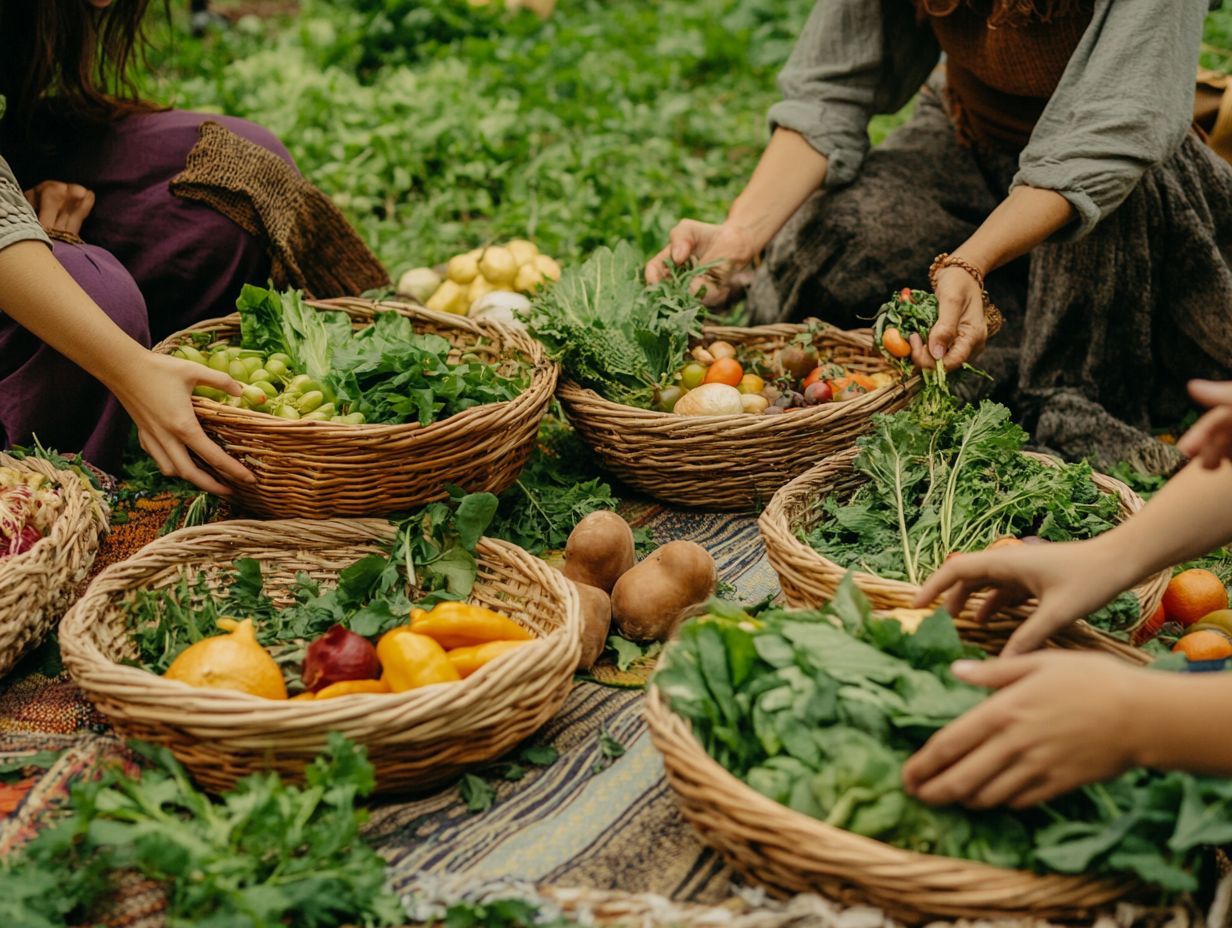
- Local foraging promotes sustainable living by reducing our environmental impact and building community resilience.
- Building and maintaining local foraging networks involves building relationships and sharing resources, leading to economic and social benefits.
- Supporting local foraging networks helps to overcome challenges and promote inclusivity, leading to a strong and resilient community.
Defining Local Foraging and Its Benefits
Local foraging has emerged as an important activity that not only reconnects you with nature but also strengthens community resilience and supports ecological health.
By immersing yourself in foraging activities, you gain access to nutritious wild foods like wild strawberries and wild garlic. These can enhance your diet and uplift your mental well-being. This age-old practice is deeply embedded in indigenous communities, who have harnessed traditional ecological knowledge for generations.
Urban foraging provides a fresh perspective on combating nature deficit disorder a lack of connection to nature, which can affect well-being revitalizing urban greenspaces and fostering sustainable food systems.
The Role of Local Foraging in Sustainable Living
Local foraging is essential for sustainable living, as it encourages the use of natural resources in an ecologically balanced and socially responsible manner.
By engaging in urban foraging, you can enhance your food supply, lessen your reliance on industrial food systems, and champion sustainable food practices that are both resilient and accessible.
This approach strengthens community ties and promotes ecological health by incorporating local biodiversity into your food production methods.
Environmental Impact and Community Resilience
The environmental impact of local foraging goes far beyond simply sourcing food. It plays a crucial role in building community resilience and enhancing urban greenspaces.
By engaging with your local ecosystem through foraging, you can address issues related to nature deficit disorder while embracing a more sustainable lifestyle. Foraging helps you truly appreciate the flora and fauna around you, enabling your community to take charge of its natural resources.
In doing so, foraging significantly contributes to improved ecological health and promotes biodiversity. It allows native species to flourish while curbing the spread of invasive plants.
As you explore your surroundings through foraging, you establish a meaningful connection with the environment, leading to greater stewardship of local spaces. The social interactions that emerge from shared foraging experiences help strengthen community bonds, creating networks rich in knowledge and support.
As urban populations continue to rise, these greenspaces become essential. They provide not only sustenance but also enhance air quality, mitigate heat islands, and offer habitats for wildlife. Ultimately, local foraging cultivates a culture of ecological awareness and proactive care for the natural resources we all share.
Creating and Maintaining a Local Foraging Network
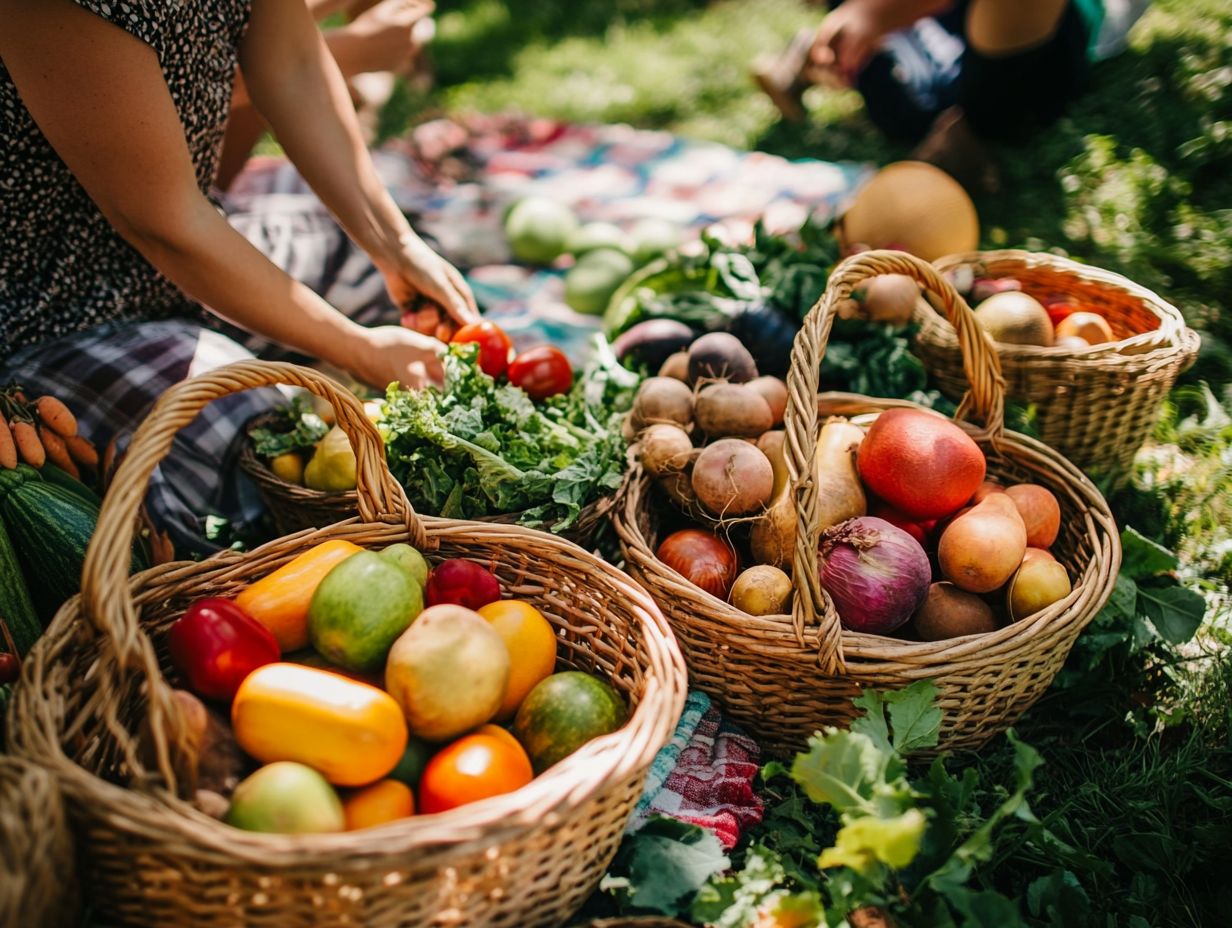
Creating and maintaining a local foraging network demands your active participation. Invite community members to share their knowledge, resources, and experiences related to foraging practices.
This network not only cultivates deep community connections but also acts as a valuable platform for sharing traditional ecological wisdom, particularly from indigenous practices that have long honored local ecosystems.
By engaging in such networks, you can enhance awareness of native plants and combat the phenomenon known as plant blindness, or the inability to notice plants in our surroundings. This allows you to rediscover and reclaim your connection to nature.
Building Relationships and Sharing Resources
Building relationships within local foraging networks requires you to cultivate trust among community members. Share valuable resources that enhance your foraging experience.
This collaborative approach strengthens community ties and gives you access to diverse knowledge about local flora, like wild strawberries and wild garlic, which can be harvested sustainably. Engaging in shared experiences during urban foraging creates lasting bonds among participants.
To foster these connections, consider participating in workshops hosted by organizations and groups that allow foragers to share their insights and experiences. These gatherings often lead to successful collaborations.
Here, you can learn from others and exchange tips on harvesting techniques, cooking methods, and even foraging ethics.
Encouraging your participation in local foraging meetups enriches your individual practices and promotes a spirit of stewardship toward shared green spaces.
By actively engaging with your community, you can gain invaluable insights that transform your foraging journey into a communal adventure, brimming with shared knowledge and resources.
Benefits of Supporting Local Foraging Networks
Supporting local foraging networks brings a wealth of benefits that go far beyond simply securing food. These networks significantly enrich community dynamics and promote individual well-being.
Engaging with them enhances community connections, creates economic advantages through shared resources, and boosts health outcomes by embracing the consumption of nutrient-rich wild foods.
The collective knowledge within these networks fosters a deeper understanding of local ecosystems and highlights the importance of biodiversity.
Economic and Social Benefits
The economic and social benefits of local foraging networks are truly remarkable. They don t just create jobs in your area; they also cultivate a strong sense of community.
By embracing sustainable food systems, you can help stimulate your local economy while reducing dependence on commercial food sources.
The shared experiences that come from foraging together not only strengthen community ties but also foster an overall sense of belonging.
Take, for example, the communities in Cascadia. They have experienced a remarkable economic revival through organized foraging events that promote local products and the sharing of knowledge.
These gatherings support local farmers’ markets and generate revenue for small businesses that offer classes or workshops on sustainable foraging practices.
The social connections forged during these activities lead to a deeper appreciation of natural resources and environmental stewardship.
This creates a ripple effect, encouraging collaboration among diverse community members. Ultimately, these networks weave a rich tapestry of resilience, where economic growth and enhanced social cohesion go hand in hand.
Join the movement! Get involved today and start connecting with fellow foragers in your area!
Challenges and Solutions for Local Foraging
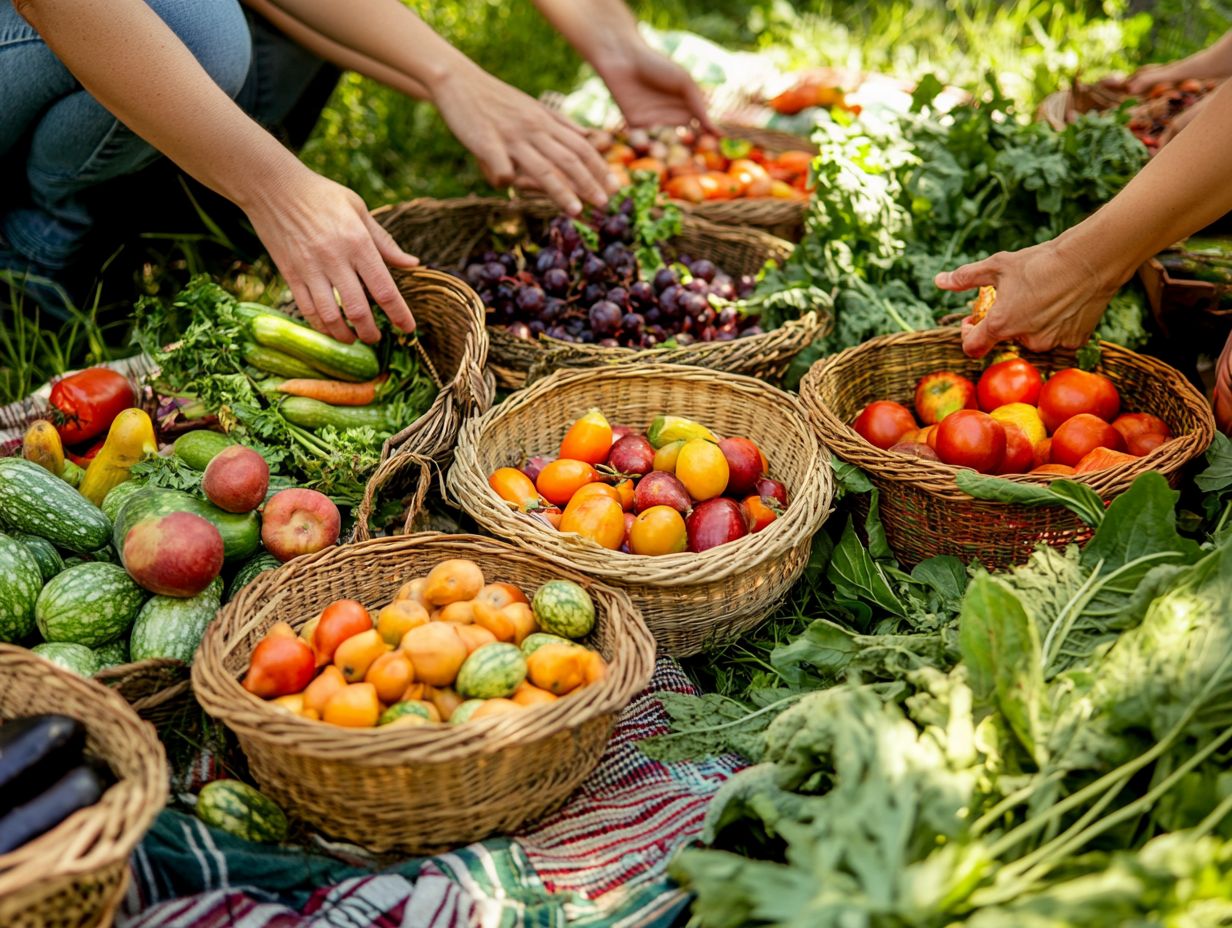
Despite the numerous benefits of local foraging, you may encounter several challenges that can hinder its practice and growth in your community. Issues like a lack of awareness about local edible plants can leave many individuals uninformed. Additionally, the pervasive nature deficit disorder can reduce engagement in foraging activities.
Tackling these challenges through education and community outreach is essential for building a more sustainable foraging culture. Let s boost our awareness of local plants and reconnect with nature!
Overcoming Obstacles and Promoting Inclusivity
Overcoming obstacles in local foraging requires dedicated action to promote inclusivity and ensure that diverse voices are heard within your community. By integrating indigenous practices and philosophies, you can help create a welcoming environment for all participants. This will enhance community connections and foster shared learning experiences.
Embracing diverse perspectives enriches your foraging experience. It’s more than just a skill it’s a communal journey rooted in respect for nature and cultural heritage. Facilitating workshops and discussions that highlight various backgrounds encourages everyone to share their unique knowledge, whether it s about local plants or traditional harvesting techniques.
This dialogue cultivates a sense of belonging and allows individuals to contribute actively, ensuring that all voices resonate within foraging networks. By prioritizing inclusivity, your community can thrive, fostering an atmosphere of collaboration and mutual respect.
Frequently Asked Questions
What are local foraging networks?
Local foraging networks are systems or groups of individuals who gather and share information about local food sources, such as plants, animals, and other resources. These networks can include both human and non-human members.
Why are local foraging networks important?
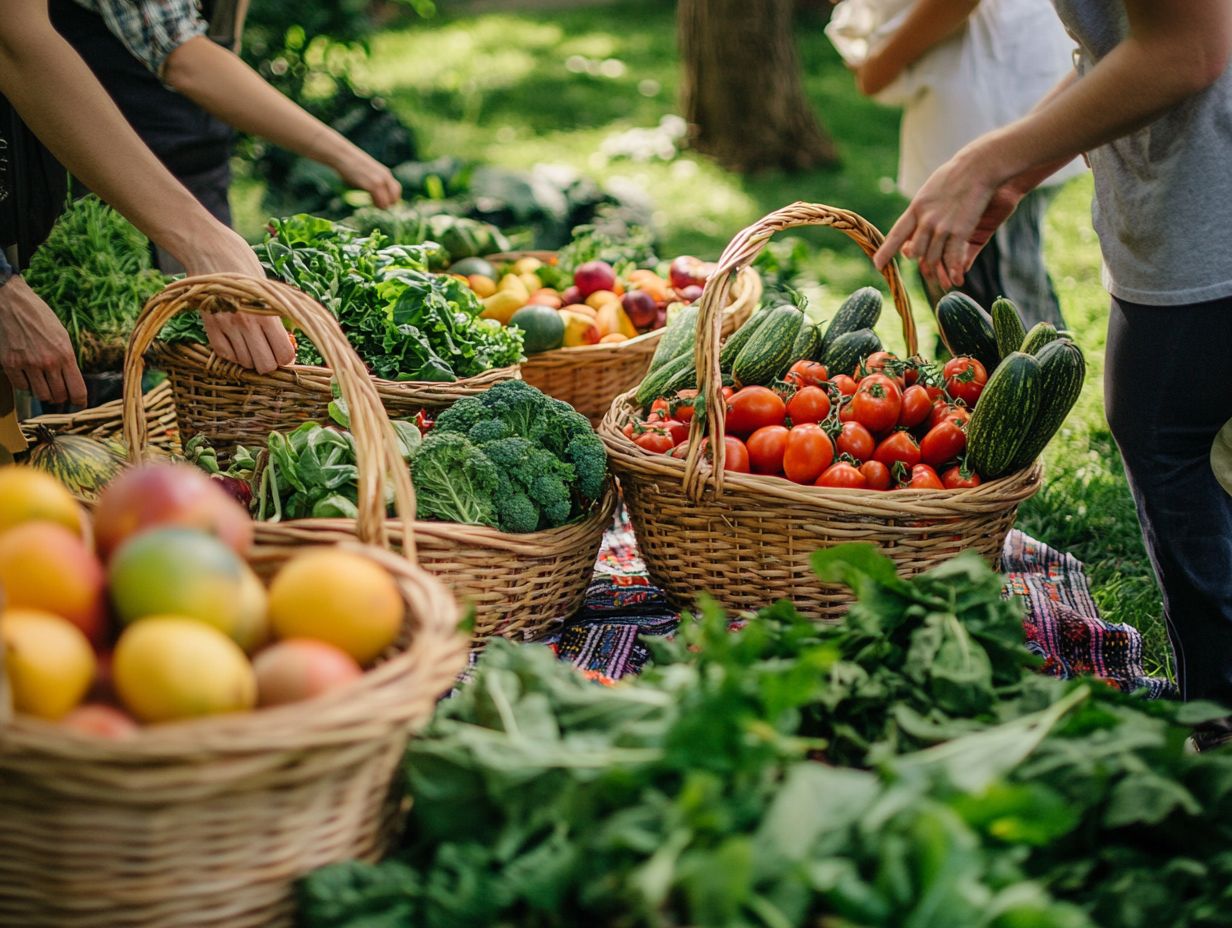
Local foraging networks play a critical role in sustaining and preserving local ecosystems and biodiversity. By relying on local resources, these networks reduce the need for industrialized agriculture and support sustainable food systems.
How do local foraging networks benefit local communities?
Local foraging networks provide access to nutritious and diverse food sources, which can improve overall health and well-being. They also promote a sense of community and cultural identity by preserving the role of community in foraging practices and traditional knowledge.
How do local foraging networks contribute to environmental conservation?
By promoting the use of local resources, foraging networks help reduce the impact of industrialized agriculture on the environment. They also support the preservation of wild plants and animals, crucial for maintaining healthy ecosystems.
How can I get involved in local foraging networks?
You can join existing foraging groups or start your own network by connecting with like-minded individuals in your community. You can also learn about traditional foraging practices from local experts and share your knowledge with others.
What are the potential challenges of local foraging networks?
One of the main challenges faced by local foraging networks is the potential for overexploitation of natural resources. It is important for these networks to adopt sustainable harvesting practices to ensure the long-term health of local ecosystems.
Join us in the local foraging movement today and discover the bounty of nature!

